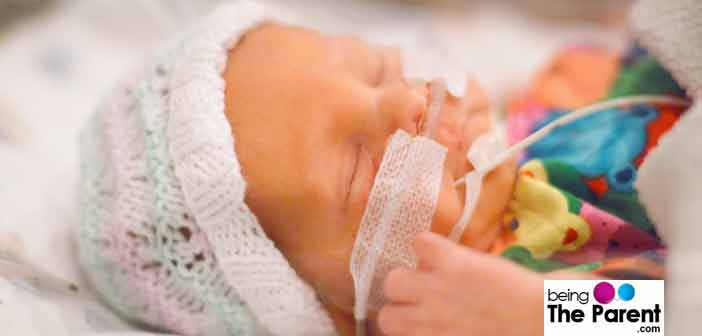
You have been eagerly waiting for your baby to arrive, an since it is a preemie, you don’t know when to take your baby home! Hospitals and homes are completely different places. The former is a facility for professional care, while the latter is your personal space. However, especially in times of pre-term birth, the initial professional care is totally mandatory.
Babies born much pre-term, before 28 weeks
You simply cannot take the premature baby home right away because he is still your dream in the process of creation, quite literally! Often, premature babies have slightly undeveloped internal organs, which is very natural. Consider the fact that if the baby was still in your womb, he would be in the developing phase as well. There is no need to fret either because the body continues to grow in the incubator under specialist medical care. Just ensure that you are also allowed to hold your baby and breastfeed occasionally.
Babies born pre-term in between 28th and 32nd week
Like explained above, your baby will still be in the incubator. However, always check whether your clinic allows Kangaroo care. Holding the baby close to the mother’s body has actually shown to trigger better growth rates than keeping the baby all the time in the incubator. Talk with the facility to find if you can provide the best natural nutrition of breast milk for the baby, even when the little one is in the incubator. The best facilities instruct the mother on breast pumping to obtain the milk. They will then make arrangements to feed the milk in the incubator.
Another common practice followed at Neonatal Intensive Care Units is to add fortifiers to the milk, but it is not anything imperative. If the breast milk is sufficient, it should be enough nutrition. Do you know nature produces the breast milk in the mother tailored for the unique condition of the child? Milk from mothers of pre-term babies has been found to carry more protein and immune elements than milk from mothers who had a timely delivery.

Preterm babies born from 32nd to 37th week
Babies born pre-term often start their lives surviving extra difficulties. Neonatal jaundice is not very uncommon. Breathing problems developed by undeveloped lungs is also usual occurrence. The facility will set up a ventilator support or arrange an oxygen hood. CPAP is also a commonly practiced method when the lungs are developed but the baby is taking breath pauses.
The long breathing is again a common occurrence in preterm babies, and is known as sleep aponea. This happens because the brain is still in a developmental stage, trying to understand its role in carrying the normal functions of life. Specialists assure that even an aponea of 20 seconds is nothing to be afraid of and eventually the baby develops regular breathing. In fact, many pre-term babies will still need oxygen after you bring them home. A reliable clinic can furnish you the details of a good home oxygen supply service.
Naturally, it is a very trying time for the mother and father. Not very surprisingly either, mothers pick up baby care very fast. It is something that you do not have to teach a mother. However, moms and dads should have patience in bringing the baby home. The doctor will not let the baby go as long as she is fully sure that the baby can survive outside the NICU. Sometimes, babies need to be kept in the incubator for several months, even up to a year! Keep patience, and wait for the day you can safely take the baby home.

On the road to home
Remember that the conditions with the baby are very sensitive and you have to be careful about everything. For example, the sudden temperature change as you step out of the hospital can come as a shock for your child. The nurse will tell you how to cover the baby in winter and the best time of the day to take your baby home. Be careful in the car. Hold the baby in hand instead of using a special child seat in the car. The baby should be held in an upright, chest-to-chest position. This allows the breathing patterns of the mother and the baby to match, which in itself is a blissful experience.
At the home
Mothers may need certain special training. It is a very good option to train in infant cardiopulmonary resuscitation (CPR) and understand when it is needed. You will also need to understand how to handle the monitors and the equipment, if necessary. Learn well, and do not say that you have understood as long as you are sure. At home, you will need to give special care in handling the baby. Anybody who touches a pre-term infant should wash hands properly at first. Look in details at the other aspects of nurturing a premature child.
Make sure that you are continuing breastfeeding for as long as you can. You will also have to take the baby to the doctor for a weekly check if she thinks it is necessary. It is a good idea to keep the phone numbers of more than one doctor in your phone book. Medical people are always busy saving lives. If the primary doctor is urgently unavailable, you will need to contact someone else. It is a heavenly experience bringing the baby home. Do totally all your best for a safe heaven.
